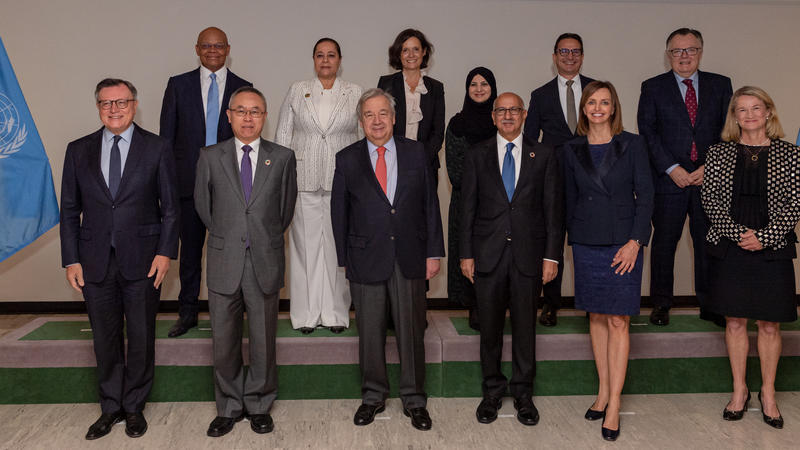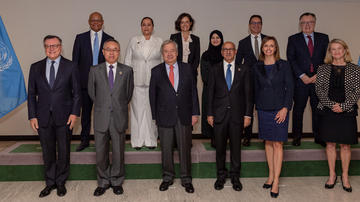Members of the Global Investors for Sustainable Development (GISD) Alliance convened today for the Fourth Annual Meeting with the UN Secretary-General António Guterres to present transformative solutions for bridging the estimated annual $4.3 trillion-dollar financing gap for countries to reach the ambitious 2030 Sustainable Development Goals (SDGs). These are outlined in the joint statement issued today by the Alliance.
The Fourth Annual Meeting took place amid a worsening global economic outlook. Concurrent global crises including the war in Ukraine, climate change, and the continuous impact of COVID-19 have resulted in an increasingly challenging investment ecosystem. The multiple crises threaten to derail the progress of the SDGs.
"The large and persistent SDG financing gap must spur our collective effort to scale up private finance and investment for the SDGs. There is no time to waste. We cannot afford for the SDGs to fall out of reach," said UN Secretary-General António Guterres.
The GISD Alliance - convened by the Secretary-General in 2019 and consisting of prominent business leaders from across the world - seeks to align, scale up, and accelerate finance and investment for the 17 Goals.
"In the past year, building on pivotal work done in the preceding years, the GISD Alliance has focused on setting conditions for the scaling up of long-term private finance for sustainable development investment (SDI)," said Leila Fourie, GISD Co-Chair and Chief Executive Officer of the Johannesburg Stock Exchange. "This was accomplished through the development of a credible definition for SDI, SDG-aligned metrics, a Model Mandate to assist in developing SDI strategies, making input into the development of a set of global sustainability reporting standards, and a roadmap for necessary MDB reforms."
"Over the next twelve months, the GISD Alliance will continue to scale up these efforts and embark on new initiatives, launching a transformational blended finance platform that will allow for co-investment in sustainable infrastructure projects," added José Viñals. "We will also continue our engagement with global stakeholders to advance the reforms necessary to unlock finance and investment for sustainable development in support of the SDGs."
To facilitate the flow of investments to developing countries, the Alliance is advocating for more effective private capital mobilization by multilateral development banks and the international development system. GISD Members have made recommendations on changes to governance and business models of development banks and enhanced blended finance structures.
Since its launch, the Alliance has developed standards and tools to align investment portfolios with the SDGs, including a unified definition of Sustainable Development Investing (SDI) and SDG-aligned, sector-specific metrics that strengthen reporting and enable credible comparison of SDG performance within and across industries.
GISD member, Aware Super, for example, a pension fund based in Australia with approximately AUD$150 billion in assets, has incorporated the SDI definition as part of its investment due diligence.
Most recently, in collaboration with the International Corporate Governance Network (ICGN), the Alliance launched the Model Mandate, which provides guidance on the contractual relationships between asset owners and asset managers, with a focus on encouraging long-term investments that are aligned with the SDGs.
The GISD Alliance has also submitted a collective response to the public consultation of the International Sustainability Standards Board (ISSB), which was established at COP26, to develop a comprehensive global baseline of sustainability disclosures for capital markets.
In addition, the GISD Alliance is moving towards launching the Sustainable Infrastructure Investment Platform (SIIP), which will allow multiple multilateral development banks and institutional investors to co-invest in SDG-aligned infrastructure and scale investments in emerging markets.
Looking ahead, GISD is compiling best practices amongst investors and corporates for integrating sustainability considerations into performance incentives and is developing actionable guidance for scaling and strengthening the sustainable bond market.



